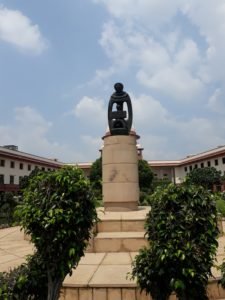The case involves a CBI investigation from March 2001, based on secret information about the illegal trade of tiger skin and wild animal products in Nagpur, Maharashtra. On 21.03.2001, a CBI team, after obtaining two independent witnesses, intercepted a silver-coloured Maruti Esteem car at M.H.S.K. Mohammad Ali Petrol Pump, Kamptee Road, Nagpur. During the search, the accused, Rajesh and Makbool Ahmed, were found in the car, and authorities recovered 23 kg of tiger bones, 5 tiger skulls weighing about 2.4 kg, 1.9 kg of tiger skin, 10 antler horns, 10 claws, and 3 teeth5. The seized items were sealed, and a Recovery Memo was prepared. An expert opinion was obtained from the Wildlife Institute of India, Dehradun6. Based on ample evidence, the CJM concluded that both accused were red-handed in illegal possession of the seized articles and convicted them.
Laws Involved The primary laws involved in this judgment are:
- The Wild Life (Protection) Act, 1972 (‘the Act’): Under which the appellants were registered6 and convicted. Specifically, Sections 49-B and 51 were applied.
- Indian Penal Code, 1860 (‘IPC’): Section 120-B was also cited in the initial charges3.
Reasoning The Supreme Court’s reasoning was two-fold:
1.On Conviction:
The Court acknowledged the appellants’ arguments concerning alleged discrepancies in the trap proceeding, such as two persons being allowed to go free7, the car already being at the petrol pump before the raiding team arrived, a time-gap of approximately two hours in the raid8, and the question of conscious possession if they were not caught in the car.
However, the Court emphasised the grave concern of the rapid decline of India’s wild animals and birds, stating that such offences are of “grave concern”. It noted that a “strict approach” is required due to the diminishing wildlife ecosystem.
Despite claims of “lacuna” in the investigation not fully aiding the appellants, the Court found that the prosecution had met the standard of ‘proof beyond reasonable doubt’ .
The testimonies of the witnesses (PW1 and PW2) were found to be clear regarding the appellants’ arrest and the recovery of items.
Ultimately, the Court concluded that the convictions did not require interference and stood affirmed.
2.On Quantum of Sentence:
The Court considered that the appellants were young at the time of the alleged offence1314.
It was noted that this case involved the recovery of poached/killed animal products rather than the act of poaching itself, which implicitly suggested a slightly different nature of the crime for sentencing purposes.
While the CBI argued for the maximum sentence of 7 years due to the need for proper wildlife preservation, the Court decided to mollify (reduce) the sentence.
Holding
The Supreme Court delivered the following holding:
- The convictions of both appellants, Rajesh and Makbool Ahmed, are upheld.
- The sentence of imprisonment for 6 (six) years imposed by the CJM on 09.04.2007 and upheld by the lower courts is reduced.
- The new sentence for each appellant is 3 (three) years simple imprisonment and a fine of Rs. 25,000/- (Rupees Twenty-Five Thousand) under Section 51 of The Wild Life (Protection) Act, 1972.
- In case of failure to pay the fine, each appellant shall undergo further incarceration for three months.
- The fine amount is directed to be deposited with the Secretary, Animal Welfare Board of India, Ministry of Fisheries, Animal Husbandry & Dairying.
- The appeals are partially allowed to the extent of the modification of the sentence .
Rajesh Etc. V. Union Of India Etc.
Supreme Court: 2025 INSC 705: (DoJ 15-05-2025)






